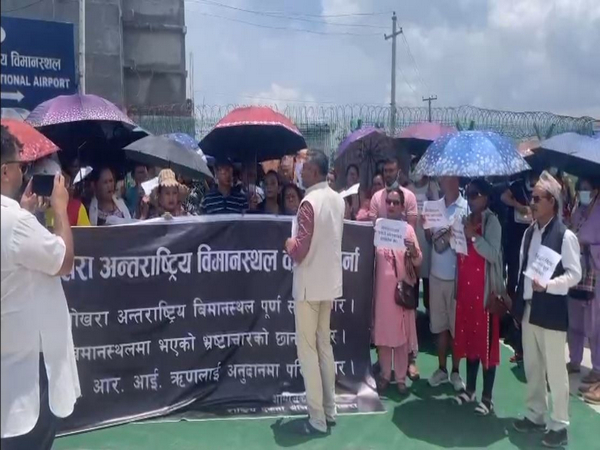Protest Erupts at China-Built Pokhara Airport Over BRI Concerns
Over 200 locals and activists protested outside Pokhara International Airport, condemning China's Belt and Road Initiative (BRI) for alleged interference in Nepal. The protest highlighted corruption claims, financial burden, and geopolitical tensions linked to the project's construction and China association.

- Country:
- Nepal
Over 200 protesters, comprising locals and activists, gathered outside Pokhara International Airport on Monday to denounce China's Belt and Road Initiative (BRI) as a tool of intervention in Nepal. The demonstration was organized by the Rashtriya Ekata Abhiyan, or National Unity Movement, amid allegations of embezzlement during the airport's construction.
Rajendra Prasad Lingden, a member of a parliamentary committee investigating the airport's construction, met with the protesters. Demonstrators also staged a sit-in, demanding the full operation of Pokhara International Airport, an investigation into corruption, and the conversion of the Chinese loan into a grant.
Binay Yadav, chairman of the National Unity Movement, accused China of attempting to control Pokhara Airport, comparing it to China's influence over Sri Lanka's Hambantota Port and Pakistan's Gwadar Port. Yadav claimed that Nepal cannot afford to repay the high-interest loans and called for an investigation into the alleged embezzlement.
Pokhara International Airport, funded and constructed by Chinese companies, has raised concerns about work quality, oversight, and Nepal's debt burden. The airport's BRI association has caused diplomatic tensions with India, complicating efforts to attract international flights.
On May 12, 2017, Nepal and China signed a Memorandum of Understanding (MoU) on bilateral cooperation under the BRI framework. Lawmakers from the Nepali Congress have since cautioned the government against accepting BRI loans without sufficient consultation and suggested focusing on grants instead.
Narayan Prakash Saud, an opposition lawmaker and former foreign minister, argued that large projects dependent on loans without a feasible market would trap the country. He stressed the importance of consulting with opposition parties and ensuring financial sustainability before proceeding with any BRI-related projects.
(With inputs from agencies.)
ALSO READ
Indian Navy Boosts Combat Capabilities Amid Rising Geopolitical Tensions
Indian Navy Strengthens Combat Readiness Amid Rising Geopolitical Tensions
Indian Stock Indices Plummet Amid Geopolitical Tensions and Chinese Stimulus Effect
Indian Stock Markets Plunge Amid Geopolitical Tensions and SEBI Regulations
Emerging Markets Sway Under Geopolitical Tensions










